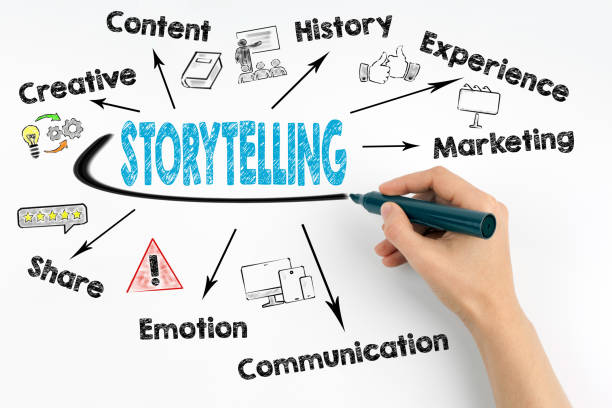Have you ever wondered why some agencies seem to thrive effortlessly while others struggle to gain traction? Are you looking for ways to attract high-quality clients without resorting to aggressive sales tactics? So, the answer lies in having a well-thought-out content marketing strategy.
Content marketing isn’t just about creating blog posts or sharing on social media; it’s about building trust, establishing authority, and delivering value to your audience. But where should agencies start? What steps can you take today to build a strategy that works?
So, in this guide, we’ll break down everything you need to know about creating a winning content marketing strategy for your agency. Additionally, from understanding your audience to leveraging the right tools, every section is designed to provide actionable advice. Let’s dive in!
Why Do Agencies Need a Content Marketing Strategy?
Content marketing is more than a buzzword; it’s a necessity in today’s competitive landscape. So, here’s why:
- Establish Authority: Sharing expert knowledge through content helps position your agency as an industry leader.
- Attract Ideal Clients: Instead of chasing leads, you attract clients who align with your services and values.
- Boost SEO: High-quality content improves your visibility on search engines, driving organic traffic to your website.
- Nurture Relationships: Through valuable content, you build trust and long-term relationships with your audience.
Agencies that invest in content marketing are better equipped to adapt to market changes and stay relevant.
Define Your Goals and Metrics
What do you want to achieve with your content marketing strategy? Also, setting clear goals is the first step to success. So, consider objectives like:
- Increasing website traffic
- Generating leads or inquiries
- Building brand awareness
- Educating your audience
Once you have defined your goals, align them with measurable metrics. For example:
- Track website traffic through tools like Google Analytics.
- Measure engagement rates on social media platforms.
- Monitor conversion rates from email campaigns or landing pages.
Having specific goals and metrics keeps your strategy focused and results-oriented.
Understand Your Target Audience – Marketing Strategy
You can’t create impactful content without knowing who you’re speaking to. So, ask yourself:
- Who is your ideal client?
- What challenges do they face?
- Where do they consume content (blogs, social media, podcasts)?
Create detailed buyer personas to define your audience’s demographics, pain points, and preferences. For example:
- Persona A: Small business owner looking for affordable social media management.
- Persona B: Marketing manager seeking an agency for long-term partnerships.
Tailoring your content to these personas ensures your message resonates and converts.

Audit Your Current Content – Marketing Strategy
Before creating new content, assess what you already have. So, conduct a content audit by:
- Listing all existing blog posts, videos, and social media content.
- Analyzing performance metrics like traffic, engagement, and shares.
- Identifying gaps or outdated information.
For instance, if your blog focuses solely on Facebook strategies but your audience is active on LinkedIn, it’s time to diversify.
A thorough audit helps you leverage what’s working while improving areas that need attention.
Choose the Right Content Formats
Not all content works for every audience. Experiment with various formats, such as:
- Blog Posts: Ideal for in-depth guides and tutorials.
- Videos: Great for storytelling and visual explanations.
- Infographics: Perfect for presenting complex data in an easy-to-digest format.
- Podcasts: Engage audiences who prefer audio content.
Match the format to your audience’s preferences and your agency’s strengths. For example, if your team excels at design, infographics might be your go-to format.
Develop a Content Calendar – Marketing Strategy
Consistency is the backbone of any successful content marketing strategy. Also, a content calendar helps you:
- Plan topics in advance
- Ensure timely publishing
- Balance content types and themes
Use tools like Trello, Asana, or Google Sheets to organize your calendar. So, include key details like:
- Publication dates
- Content titles and formats
- Assigned team members
Having a well-structured calendar ensures your efforts remain organized and efficient.

Optimize for SEO – Marketing Strategy
Even the best content is useless if no one can find it. So, to maximize visibility:
- Conduct keyword research using tools like Ahrefs or SEMrush.
- Optimize titles, meta descriptions, and headings.
- Use internal and external links strategically.
- Ensure your content is mobile-friendly and fast-loading.
For example, targeting long-tail keywords like “best content marketing strategies for agencies” can attract a highly specific audience.
Promote Your Content Effectively
Creating great content is only half the battle; promotion is just as crucial. So, here are some tips:
- Social Media: Share content across platforms like LinkedIn, Instagram, and Twitter.
- Email Marketing: Send newsletters to your subscribers featuring your latest posts.
- Collaborations: Partner with industry influencers or other agencies for cross-promotion.
- Paid Ads: Use PPC campaigns to boost visibility for high-value content.
By diversifying your promotion efforts, you ensure maximum reach and engagement.
Leverage Analytics to Improve – Marketing Strategy
Regularly analyzing performance data helps you refine your strategy. Also, focus on metrics like:
- Traffic Sources: Where is your audience coming from?
- Engagement Rates: Are readers interacting with your content?
- Conversion Rates: Are visitors taking desired actions, like signing up or inquiring?
Use tools like Google Analytics, HubSpot, or Hootsuite Insights to track progress and make data-driven decisions.
Adapt and Evolve
The digital landscape is always changing, and your content marketing strategy should too. So, stay updated on:
- Emerging industry trends
- Algorithm changes on platforms like Google or Instagram
- Audience feedback and preferences
For instance, if video content is gaining traction in your niche, prioritize creating short-form videos or reels. Also, being adaptable keeps your agency ahead of the curve.

Final Thoughts: Marketing Strategy
Building a content marketing strategy for your agency doesn’t have to be overwhelming. By following these steps—defining goals, understanding your audience, auditing existing content, and optimizing for SEO—you can create a powerful strategy that drives results.
Lastly, content marketing is a long-term investment. Also, with consistency, creativity, and data-driven adjustments, your agency can attract ideal clients, build authority, and achieve sustainable growth.
So, what’s stopping you? Start crafting your strategy today and unlock your agency’s full potential!







